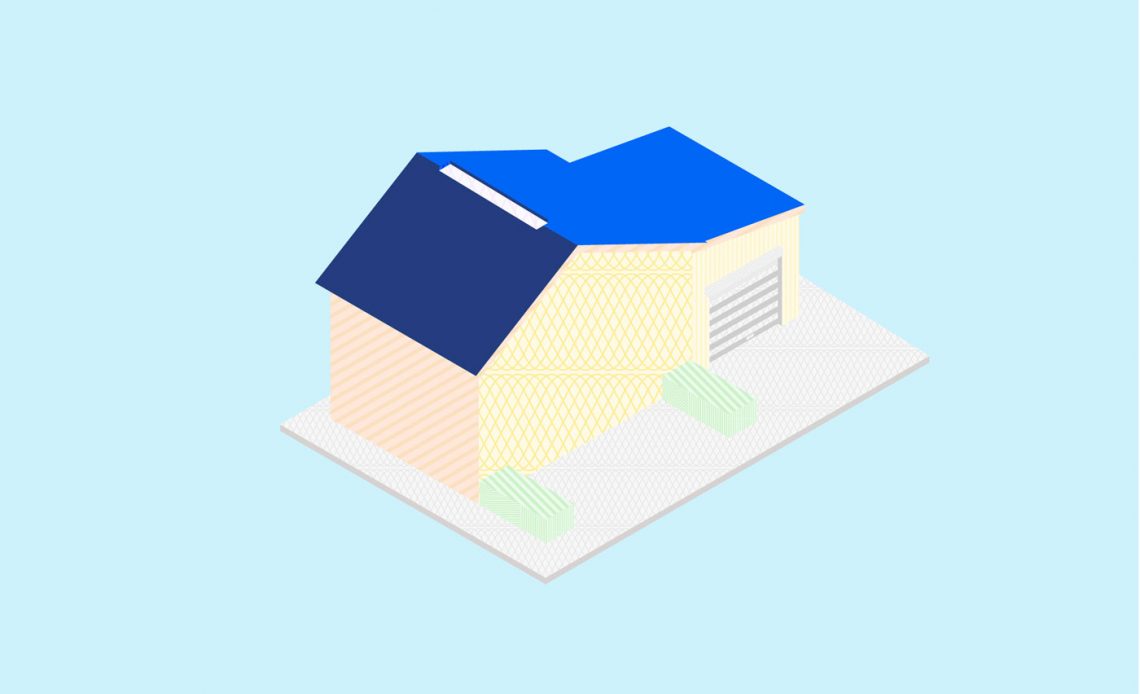
Having a roof over our heads is one of the most basic human needs. This need is usually met in the form of owning a house or paying house rent for one. The final decision on which to settle for depends on our income level, current financial wellbeing or pure preference.
That said, owning a house of your own is a culturally significant status, especially in Nigeria. As such, it is a dream for most people to become landlords one day. Reality is however different from a dream. Based on the recent data from the National Bureau of Statistics (NBS), house ownership rate in urban areas in Nigeria is 48 percent. This implies that the majority live in either free houses or rented apartments. Thus, making a financial decision on house rent payment is an annually recurring event for most people.
What is the right amount of house rent to pay?
Last week, we conducted a Twitter poll to gain insight into what percentage of annual income people spend on house rent.
What percentage of your annual income or annual salary do you spend on your house rent?#PersonalFinance#CowryWise
— Cowrywise (@cowrywise) April 21, 2017
From the poll, about 5 out of 10 people spend more than 25 percent of their annual income on rent. The rule of thumb in personal finance is to spend between 25 and 30 percent of annual income on rent. So for example, if you make ₦4,000,000 annual income, your annual house rent should range between ₦1,000,000 to ₦1,200,000.
However, as income level rises the focus shifts from the percentage of income spent on house rent to the amount of income left to meet other necessities of life after paying rent. In Lagos for example, if your annual income is ₦20,000,000, you can pay 45 percent as rent and still have money left to meet life’s other necessities. But if your annual income is ₦3,000,000, it will be difficult to meet other necessities of life like food, healthcare, and clothing if you paid as much as 30 per cent of your income on rent.
Beyond the percentage of income spent on rent, there are other factors to consider, such as the available infrastructure where the house is located and nearness to the workplace.
The dreaded ‘rent month’
Unlike some other cities around the world, rent in most parts of major cities in Nigeria is paid upfront annually. This annual payment is a financial shock to most people. Because rent payment is done once a year, the majority do not bother about rent until say a month or two before the due date. This is usually not because they do not care, but because of a belief that “anyhow anyhow, I go pay am”. This “anyhowness’ however falls short of the personal-finance rule of budgeting and taking charge of one’s finances.
The toughest month for most Nigerians who pay annual rent is the month when rents are due for payment— the ‘rent month’. We’ve all been there at different times. Landlords feel the pains when overdue rents are not paid. And tenants feel shame for not being able to meet their rent obligations. This gets really ugly most times.
But there is a better way to pay house rent
Saving monthly is a sure way to free yourself from the dreaded ‘rent month’. By saving a portion, say 25 per cent, of your monthly income into a separate ‘Rent Plan” account, you automatically will have enough to pay your annual rent after 12 months. Easier said than done right? We know.
That is exactly one of the reasons we created Cowrywise. Cowrywise is an automated saving and investment platform that helps you automate your periodic savings. You specify a date and Cowrywise will automatically save an amount away from your bank account into your Cowrywise account.

Beyond being able to meet your rent obligations easily when due, the other interesting part is the fact that your monthly “House Rent Plan” will accumulate interests on its own. Cowrywise interest rate is 2.5x what banks give on a savings account.
Why not live a good life with Cowrywise automated saving plans?
This article is a practical illustration of everyday use cases of Cowrywise. The platform allows for personal budgeting by helping users set aside different amounts in different saving plans to meet different needs such as house rent payments, children’s school fees, vacation, emergency funds and much more.
RELATED:

This is quite insightful!
I love it.
Glad it helped!
I love and treasure this article.
It’s accurately informative and enlightening.
Thanks.
I love this. It has thrown light to what is on my mind
It’s quite enlightening is informing.
Thank you.
Well Explained, and easily comprehensive… Thanks guys???